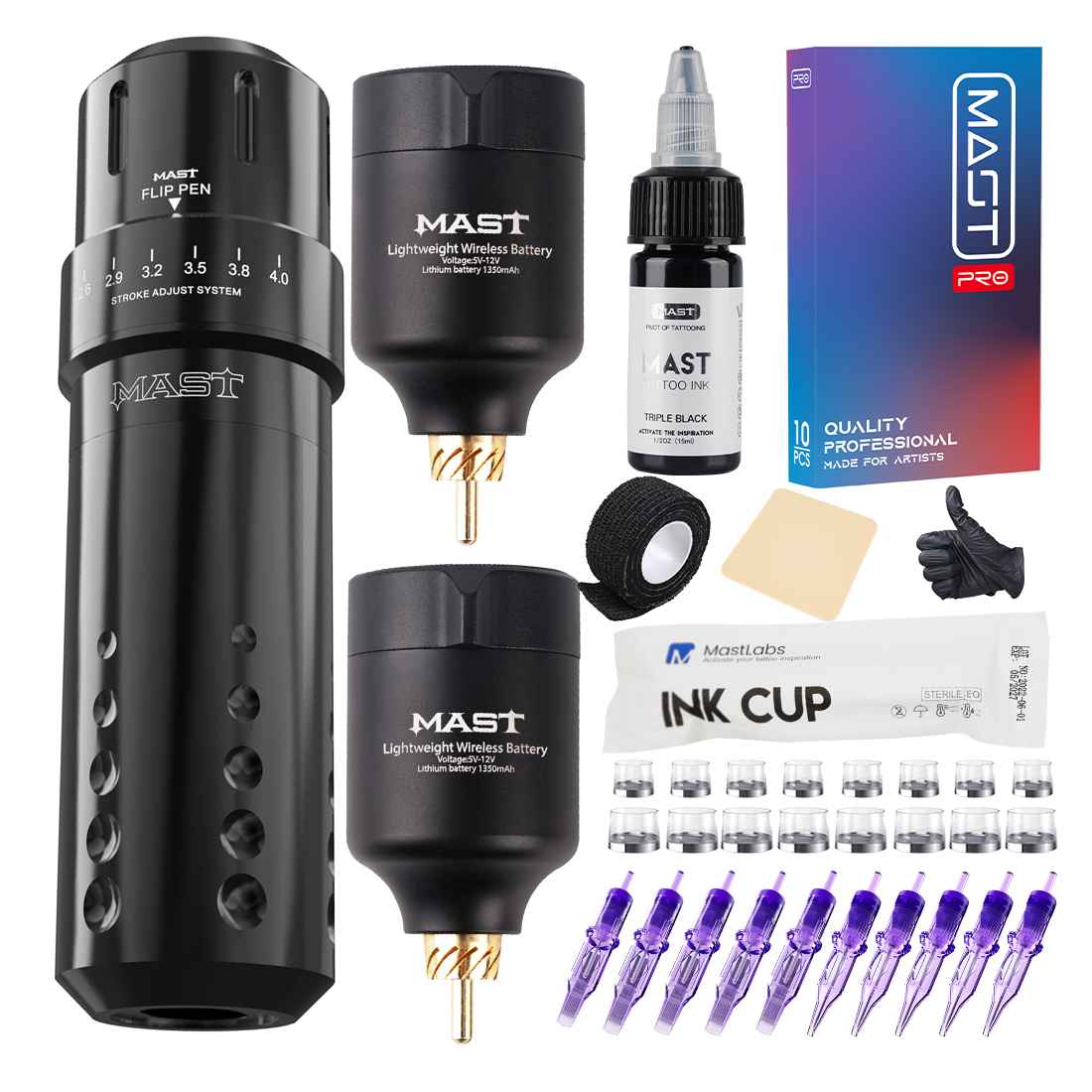In a world filled with artistic expressions and personal statements, the allure of tattoos has captured the hearts and minds of many, including teenagers.
However, the question remains: is it okay to have a tattoo at 16?
This blog post delves into the legal, health, and social aspects of this controversial topic, aiming to provide valuable insights and guidance for both young individuals and concerned parents.
Legal Considerations
Navigating the legal landscape is a crucial aspect when considering getting a tattoo at 16.
Understanding age restrictions and parental consent requirements is essential to ensure compliance with the law and make informed decisions.
1. Age restrictions and parental consent
Embarking on the journey of body art as a teenager involves navigating a labyrinth of age restrictions and parental consent requirements.
The minimum age for getting a tattoo varies across countries, each with its unique regulations.
Let’s take a glimpse at the global tapestry of tattoo laws:
United States: In the land of stars and stripes, the legal age for tattoos ranges from state to state.
For instance, California permits tattooing at 18 without parental consent, while in Ohio, teenagers as young as 16 can get inked with parental approval.
United Kingdom: Across the pond, the minimum age for tattoos stands at 18.
However, individuals aged 16 or 17 can get tattooed if accompanied by their parent or legal guardian.
Australia: Down under, most states require individuals to be 18 or older to get a tattoo without parental consent.
Nevertheless, in Queensland and South Australia, 16-year-olds can get inked with parental permission.
Germany: Known for its rich history, Germany sets the minimum age for tattoos at 18, ensuring that individuals have reached adulthood before making such permanent decisions.
Japan: In the land of cherry blossoms and ancient traditions, the minimum age for tattoos is 20.
Tattooing is tightly regulated, often limited to licensed medical professionals.
These examples demonstrate the diverse range of regulations governing the age at which one can get a tattoo.
Furthermore, parental or guardian consent requirements are in place to safeguard the well-being and interests of minors.
It is essential to be aware of these laws and seek guidance from responsible adults to ensure compliance and make informed choices.
By understanding the legal landscape, young individuals and their parents can navigate the intricate paths of tattoos responsibly, ensuring that the allure of body art aligns with the laws and regulations of their respective regions.
Remember, getting inked is a lifelong commitment, and embarking on this journey with legal clarity can lead to a more positive and fulfilling tattoo experience.
Also Read: How old do I have to get a tattoo
2. Legal consequences for underage tattooing
While the allure of getting a tattoo may be tempting for teenagers, it’s important to recognize the legal ramifications associated with underage tattooing ( here’s the UK Act on tattooing of minors)
Tattoo artists and establishments that engage in tattooing minors without proper consent can face severe penalties and legal consequences.
Imagine a scenario where a tattoo artist knowingly ignores the age restrictions and proceeds to tattoo a minor without parental consent.
In such cases, the repercussions can be significant. The tattoo artist may be subject to hefty fines, license revocation, or even legal charges, depending on the jurisdiction.
These consequences serve as a deterrent, highlighting the importance of adhering to the legal procedures and ethical standards.
However, it’s not just the tattoo artists and establishments that may face legal implications.
Minors who get tattoos without following the legal procedures can also find themselves in legal trouble.
For instance, if a teenager lies about their age or deceives the tattoo artist to receive a tattoo without proper consent, they may inadvertently expose themselves to legal consequences.
In some jurisdictions, this can result in penalties, community service, or even involvement with child protective services.
To illustrate this, consider a scenario where a 15-year-old manages to convince a tattoo artist to ink them without parental consent.
While it may seem exciting in the moment, both the teenager and the tattoo artist could face legal repercussions if discovered.
The artist could be held accountable for violating the law, and the minor may find themselves entangled in a legal process that could have been avoided with proper adherence to the age restrictions and consent requirements.
Also Read: Can you be 14 to get a tattoo?
Health Considerations
Taking care of one’s health is paramount, and when it comes to getting a tattoo at 16, understanding the implications for skin health is crucial.
Let’s explore the importance of skin maturity and the potential risks associated with tattooing on immature skin, as well as the higher risk of allergic reactions and infections in younger individuals.
We’ll also uncover the essential practices of proper aftercare and hygiene to minimize these risks and ensure a safe tattooing experience.
1. Skin maturity and development
Our skin is a remarkable organ that undergoes a complex process of maturation and development.
When considering a tattoo, it is essential to acknowledge the significance of fully developed skin.
Adolescents’ skin is still in a phase of growth and transformation, and tattooing on immature skin may lead to unforeseen complications.
Immature skin lacks the structural integrity and stability that fully developed skin possesses.
This disparity can result in issues such as uneven ink distribution, fading, and potential distortion as the skin continues to grow.
To ensure optimal tattoo quality and longevity, it is generally recommended to wait until the skin has reached maturity.
2. Allergic reactions and infections
The youthful exuberance of teenage years can sometimes come with a heightened susceptibility to allergic reactions.
Younger individuals may have more reactive immune systems, increasing the risk of adverse reactions to tattoo ink.
Allergies can manifest as itching, redness, swelling, or even more severe symptoms.
Additionally, the risk of infections after getting a tattoo is higher in adolescents due to their immune systems still developing.
Contaminated equipment, improper aftercare, or unsterile environments can lead to infections that can range from mild to severe.
To minimize these risks and ensure a safe tattooing experience, proper aftercare and hygiene practices are vital.
This includes diligently following the tattoo artist’s instructions, keeping the tattoo clean and moisturized, avoiding exposure to excessive sunlight or water, and refraining from picking at scabs or scratching the tattooed area.
Adhering to these guidelines can significantly reduce the chances of infections and allergic reactions.
Also Read: Is 17 a good age to get a tattoo?
Social Considerations
Navigating the realm of tattoos at a young age goes beyond legalities and health concerns.
Social considerations play a pivotal role in understanding the long-term implications and personal growth associated with getting inked.
1. Long-term implications and personal growth
As teenagers transition into adulthood, their personal preferences and values often undergo substantial transformations.
What may seem like an appealing design or symbol at 16 may lose its significance or relevance in the years to come.
It’s crucial to consider the potential changes in taste, interests, and beliefs when contemplating a tattoo at a young age.
Moreover, the impact of tattoos on future career prospects and societal perceptions cannot be overlooked.
While tattoos have become more widely accepted in society, certain industries and professions may still hold conservative views on visible body art.
This can present challenges when pursuing certain career paths or seeking opportunities where professional appearance is a significant factor.
It is important to recognize that tattoos can have long-lasting effects on one’s personal and professional life.
Also Read: Can you get a tattoo at 15?
2. Individual maturity and informed decision-making
Understanding the permanence and implications of tattoos is essential before making a lifelong commitment.
Tattoos are not easily reversible, and the decision to get inked should be approached with thoughtful consideration.
Individual maturity plays a vital role in this process, as it involves weighing the potential benefits and drawbacks of tattoos.
Responsible decision-making goes hand in hand with individual maturity. Teenagers considering a tattoo should engage in thorough research, educating themselves about the tattooing process, aftercare, and potential risks.
They should also involve their parents or guardians in the decision-making process, fostering open communication to ensure a supportive and informed approach.
By encouraging young individuals to make informed decisions and engage in open dialogue with their parents or guardians, we can create an environment that promotes responsible tattoo choices.
It is crucial to empower teenagers to understand the significance and permanence of tattoos while considering their personal growth, future aspirations, and societal factors.
Also Read: Will my tattoo stretch if I get it at 18?
FAQs
Can I get a tattoo at 16 with parental consent?
Yes, in some countries and states, individuals can get tattoos at 16 with parental or guardian consent.
In the United States, states like California, Florida, and Texas allow tattooing at 16 with parental consent.
Are there any countries where the legal age for tattoos is 16?
Yes, there are countries where the legal age for tattoos is 16. Germany, France, and the Netherlands, for instance, allow tattooing at 16 with parental consent.
What are the risks of getting a tattoo at a young age?
Risks include potential allergic reactions, infections, scarring, and complications due to the immaturity of the skin.
Younger individuals have a higher risk of allergic reactions and infections due to their less developed immune system.
Will my tattoo look different as I grow older?
Yes, tattoos can change in appearance as you age due to factors like skin elasticity, weight fluctuations, and natural aging processes.
Skin sagging or stretching, which may occur with age or weight gain/loss, can affect the appearance of the tattoo.
How can I talk to my parents about getting a tattoo at 16?
Approach the conversation with respect, maturity, and a well-informed understanding of the risks and responsibilities.
Share your reasons for wanting a tattoo, demonstrate your commitment to aftercare and hygiene, and be open to hearing their concerns.
Also Read: Pros and cons of getting a tattoo at 16
Conclusion
In the quest to answer the question, “Is it okay to have a tattoo at 16?”, we have explored the legal, health, and social considerations surrounding this contentious topic.
It is crucial to weigh these factors carefully before making a decision that can have long-lasting effects.
Legal requirements vary across countries, with some allowing tattoos at 16 with parental consent.
However, the health risks associated with tattooing on developing skin should not be ignored.
Allergic reactions, infections, and complications are more common among young individuals.
Moreover, social implications such as evolving personal preferences, future career prospects, and societal perceptions should be taken into account.
Tattoos can have a lasting impact, potentially influencing professional opportunities and societal judgments.
In light of these considerations, open dialogue and informed decision-making are paramount.
Engaging in conversations with parents or guardians, sharing personal motivations, and demonstrating responsibility towards aftercare and hygiene can foster understanding and support.
Ultimately, the decision to have a tattoo at 16 requires careful consideration of the legal, health, and social factors discussed.
By empowering teenagers and encouraging open communication, we can navigate this decision-making process together, ensuring that choices align with personal growth, aspirations, and overall well-being.
Remember, informed decisions and thoughtful discussions pave the way for responsible tattoo choices.






